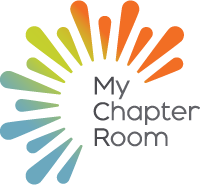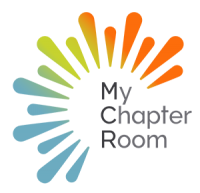 Interviewing is an important skill – and it’s also not as scary as it might look! By the time you’ve got an interview, you’ve already made a positive impression. Whether it’s for a job, an internship, a scholarship, or anything else, an interview means you have the qualifications you need. Most of what the big day is for is making sure you’re a good cultural fit with an organization.
Interviewing is an important skill – and it’s also not as scary as it might look! By the time you’ve got an interview, you’ve already made a positive impression. Whether it’s for a job, an internship, a scholarship, or anything else, an interview means you have the qualifications you need. Most of what the big day is for is making sure you’re a good cultural fit with an organization.
Of course, that might not stop you from feeling a little nervous before an interview, and that’s normal. An interview usually means there’s a big opportunity afoot, and it can take a few minutes to break the ice. That’s okay! The more prepared you are, the more confident you’ll feel throughout the entire process.
When getting ready for an interview, be sure to follow these steps:
1. Respect Your Interviewer’s Time
When it’s time for an interview, it’s good to arrive early – but not too early. About 10 minutes will give interviewers the option of seeing you a bit sooner without making them feel like they have to do something to get you out of their waiting room. Time is money, especially in the corporate world, so feel free to thank the interviewer for making time to see you.
2. Dress for the Job and the Company
 Looking professional and put together is essential on any interview. Sometimes, it can be a little bit tough to know exactly how far you should go. Before the day arrives, be sure you know what the company’s usual dress code is like – in general and for the position you want. Then, dress to that standard. Avoid flashy clothing, too much jewelry, or strong perfume.
Looking professional and put together is essential on any interview. Sometimes, it can be a little bit tough to know exactly how far you should go. Before the day arrives, be sure you know what the company’s usual dress code is like – in general and for the position you want. Then, dress to that standard. Avoid flashy clothing, too much jewelry, or strong perfume.
3. Do Your Research
The more you know about the organization, the more impressive you can be: That’s true for any kind of opportunity, not just jobs. Do your research online and find out what kinds of challenges and opportunities the organization is facing. What big projects are going on? With this info, you can express a clear idea of where you might fit in – and that makes an impression!
4. Come Prepared with Questions
Interview questions can be tough, but virtually all interviews end with the same one: “Do you have any questions for me?” You might come with a question or two already in mind, but be sure they’re about the organization and your place in it, not about things like pay, benefits, or vacation. The best questions are natural and authentic, springing from what was said during the talk.
5. Follow Up With a “Thank You” Note
It wasn’t that long ago when it was actually very common to thank an interviewer for seeing you with a short, handwritten note. Now, few jobseekers do it – so it makes a big impression when it happens! Take the time to send your interviewer a thank you email. Go for the personal touch here: be sure you reference at least one specific thing the interviewer said.

